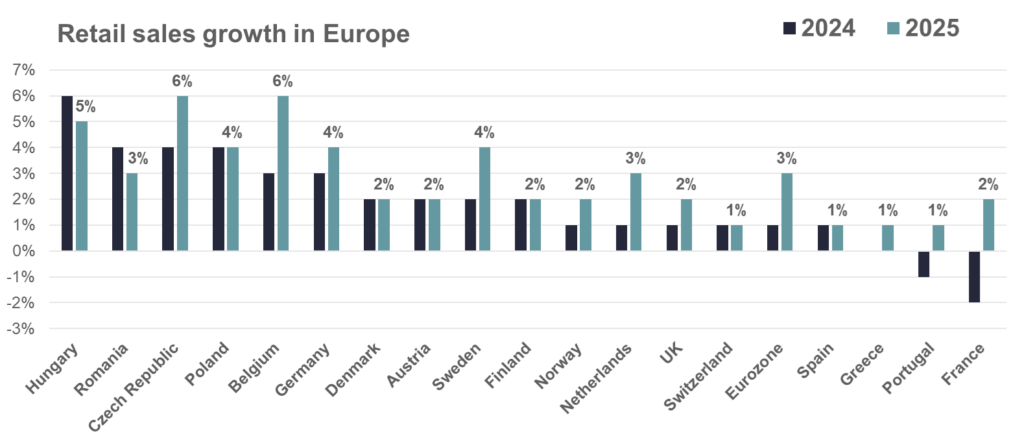„In the Czech Republic, retail food sales have been rising year-on-year for the sixth consecutive month. Annual comparisons also show growth in the total revenues of individual retail chains, leading many to expand into new locations and increase the number of stores in larger cities. Penny Market boasts the densest network of stores in the Czech Republic, but Lidl has achieved the highest annual revenues in recent years, with Kaufland ranking second. Looking ahead, the Polish discount chain Biedronka could enter the food sector competition as early as 2025, with preparations already underway for its entry into the Slovak market. Alongside the expansion of multinational chains, smaller independent food stores, which are not part of any retail network, continue to close down, particularly in smaller towns,” says Lenka Pechová, Senior Research Analyst at Savills.

James Burke, Director, Global Cross Border Investment at Savills, says: “While a lack of stock may limit the number of transactions, sale & leaseback deals and mergers & acquisitions will support activity in the market. We expect to continue to see consolidation of portfolios as the big grocery players look to grow their market share.”
Supermarket yields are expected to remain stable for the remainder of the year, with the European average at 5.90% and the Czech Republic at 6.25%. Yields shall begin to harden in 2025 as interest rates across Europe fall and investors seek to increase their exposure to the market. According to Savills, consumers’ preference is starting to shift towards convenience and smaller stores, leading to many retailers focusing on city-centre ‘express’ shops and reducing the larger hypermarket format.
Convenience and independent stores, which have become increasingly prominent since the onset of the pandemic, allow consumers to make smaller and more frequent, essential, ‘top up’ purchases close to their homes. As a result, shoppers have become much more reliant on what is local, in addition to larger, less frequent supermarket shops. This is resulting in many retailers rethinking their hypermarket footprint.







